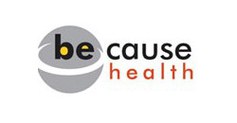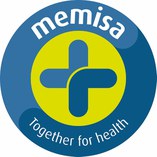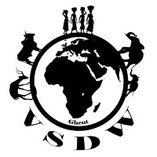Health Sciences Crossing Borders
When: Thursday 16 October 2025 (13:30 - 16:15)
Where: Campus UZ Gent, Corneel Heymanslaan 10, 9000 Ghent
For the ninth year in a row, we are organizing Health Sciences Crossing Borders. We are happy to organize this event in collaboration with the Faculty of Veterinary Medicine. The aim of this event is to showcase the many facets of internationalisation and to prepare you for an important challenge of our time: our global and hyper-diverse society.
Programme
In each time slot, you can choose between 5 different sessions.
| Auditorium C, entrance 48 | Auditorium D, entrance 48 | Auditorium F, entrance 6 | Auditorium G, entrance 6 | Fusion; The Core, entrance 37a | |
|---|---|---|---|---|---|
|
13:30-14:15 |
The compounding effect of sexual violence in migration (Ines Keygnaert) |
The psychosocial well-being of refugees (Ilse Derluyn) |
A one health approach to combating animal and human fungal toxins disease (Siska Croubels) |
How to bypass denied access to medical and physical rehabilitation care for injured in humanitarian conflict: Humanity & Inclusion Perspective (Eric Weerts ) |
International market |
| 14:30-15:15 | To the Global South: ethical considerations (Sebastian Van Hoeck) |
Plan Bobath Senegal: een evaluatie na 20 jaar werking op het terrein (Annemie Mortier) |
One health in Belgium, interactive debate on actual one health questions (Jeroen Dewulf) |
Dealing with Racism in Medicine and Healthcare: Self-Reflection for Anti-Racist Action (Simon Gerhards) |
International market |
| 15:30-16:15 | Cross-cultural competence in health practice (Jeanne Boden) |
Thuis en in het buitenland: werken in diversiteit - ervaringen van een huisarts (David Vanneste) |
One health implementation of disease control: a potholed road to success |
Students Global Health: |
International market |
| Moderators: Chris Monten & Kristiane Van Lierde |
Moderators: Maïté Verloigne & Marieke De Craemer |
Moderator: |
Moderators: Martijn Lambert & Frederik De Coninck |
The psychosocial well-being of refugees (Ilse Derluyn)
Ilse obtained her PhD in Educational Sciences at Ghent University and is currently full professor in the Department of Social Work and Social Pedagogy (Ghent University), where she teaches courses in migration and refugee studies. Ilse's main research topics concern the psychosocial wellbeing of unaccompanied refugee minors, migrant and refugee children, war-affected children, victims of trafficking and child soldiers. Prof. Derluyn is heading the Centre for the Social Study of Migration and Refugees (CESSMIR) and is co-director of the Centre for Children in Vulnerable Situations (CCVS).
Migration is an important topic on the political agenda and in public debates. Yet, the group of people with a migration background in our country is highly diverse. The lecture will discuss the different definitions and legal procedures of this diverse group and discuss how their migration experiences impact their wellbeing. These reflections will then be translated into concrete tools to support this group in health practices.
A one health approach to combating animal and human fungal toxins disease (Siska Croubels)
Siska Croubels is director of the Laboratory of Pharmacology and Toxicology at the Faculty of Veterinary Medicine, Ghent University. Prof. Croubels is lecturer for the courses General Pharmacology and Toxicology. Her research focuses on the in vivo disposition characteristics of (myco)toxins and drugs in animal species, including wildlife and environmental exposure.
Her research group develops species-specific biomarkers for mycotoxin exposure, in vivo models for efficacy testing of post-harvest mycotoxin mitigation strategies, and generates insights on the impact of mycotoxins on animal health, and on their interactions with drugs and the pathogenesis of major pathogens in animals. Her group is member of the MYTOX and MYTOX-SOUTH expertise centers (www.mytox.be; www.mytoxsouth.org), dealing with the effects of mycotoxins on human and animal health in the North and South.
The One health approach is a promising way to tackle global health issues, that acknowledges the interconnectedness of human, animal (incl. wildlife), plant, and environmental health. In September 2024, a new study linked a fungal disease responsible for the mass die-off of insect-eating bat populations in the USA, with an increased pesticide use by farmers. This in turn has been associated with a raise in infant mortality rates. This talk will highlight how fungal diseases in agricultural crops are directly related to animal and human health, and how collaborative efforts across various disciplines are essential for mitigation. The results of the LEAP-Agri MYCOSAFE-SOUTH project (2018-2022) will be shown (Long term EU-Africa research and innovation Partnership on food and nutrition security and sustainable agriculture), as well as the goals of UP-RISE (EU-AU Partnership for Resilient, Inclusive and Safe food systems for Everyone, 2024-2028).
To the Global South: ethical considerations (Sebastian Van Hoeck)
Sebastian Van Hoeck currently works for the University of Antwerp as a Global Engagement & Decolonization officer, while previously having worked for UCOS as an intercultural trainer and policy advisor with regards to North-South partnerships and student mobility. Sebastian has trained more than 8000 students before their departure to the Global South and has lived himself in Cuba, Eswatini, South-Africa, Nicaragua and Tanzania.
In an age of rapidly increasing systemic challenges, international solidarity is more needed than ever. There is a lot of enthusiasm and goodwill to contribute to change while at the same time strengthening our own intercultural skills and experiencing an international adventure. A great win-win in other words! But, contributing to positive change in the so-called Global South brings with it a plethora of paradoxes and difficulties, whereby it is sometimes unclear what the added value is of our internship for local communities and partners. High levels of power inequality, coupled with possible unconscious racism and cultural misunderstandings, may lead to no positive change taking place.
This session aims to analyze various pitfalls around class, race, culture, privilege, and motivation when undertaking an internship in the Global South and frames to combat these.
Students Global Health
Health doesn’t stop at national borders, but healthcare often does. Depending on where you are, who you are, and what system you’re in, your access to care can look very different. This session examines how health systems worldwide influence who receives care, how quickly, and at what cost.
Through real-world examples, we’ll explore issues like getting medicines in a new country, type of medical facilities accessed, dealing with insurance and paperwork, and the important role health care professionals lay as cultural and language bridges. You’ll be encouraged to think about what “universal healthcare” really means and whether it exists in practice. By comparing experiences from Europe, particularly Belgium, to countries like India and Saudi Arabia, we’ll see how each system functions. The session will leave you reflecting on how borders, policies, and health systems affect everyday health, and what we can learn from each other to make care fairer and more equitable for all.
Cross-cultural competence in health practices (Jeanne Boden)
Jeanne Boden, doctor in Eastern Languages and Cultures, Director of Cultural Quantum, has a lifetime of experience in working across cultures. She developed a practical method for achieving efficiency in cross-cultural collaboration.
Today she will explain how cultures (and medical systems) can differ and introduce the Cultural Quantum method in a nutshell.
Thuis en in het buitenland: werken in diversiteit - ervaringen van een huisarts (David Vanneste)
Dr. David Vanneste is huisarts met een passie voor de diversiteit op onze aardbol. Hij heeft 4 jaar gewerkt in Wuustwezel, 9 jaar in WGC Daenshuis in Aalst, 2 jaar in WGC Medikuregem en 3 jaar in WGC Rabot, telkens met een superdiverse populaties. Daarnaast heeft hij 5 jaar lesgegeven aan de KU Leuven over diversiteit in de zorg en geeft hij nu de lessen rond diversiteit aan de UGent.
One health implementation of disease control: a potholed road to success (Sarah Gabriël)
Prof. Sarah Gabriël is currently heading the Laboratory of Foodborne Parasite Zoonoses in the Department of Translational Physiology, Infectiology and Public Health, Faculty of Veterinary Medicine, Ghent University. She has been working for 23 years in the Global South. She lived and worked for five years at the University of Zambia, in collaboration with Ghent University, and for three years in Gabon. In 2008 she was attached to the Institute of Tropical Medicine, Antwerp, Belgium. Since then, she focused her research on foodborne parasitic zoonoses. In October 2016 she established the Laboratory of foodborne parasitic zoonoses at Ghent University. Her research applies a multidisciplinary, One Health approach, including the host, parasite and environment, within Belgium, the European Union, but equally so in endemic areas in the Global South. Development and evaluation of diagnostic tools/ studies on transmission dynamics/ development and evaluation of possible control/elimination
strategies are keywords in her research. She is Chair of the European Network on taeniasis/cysticercosis (CYSTINET). She has been a member of several committees/working groups for WHO, PAHO, OIE. She is a lecturer in Veterinary Public Health.
One Health recognises the close link and interdependence of the health of humans, animals, plants and the wider environment, and encourages multiple sectors, disciplines and communities at varying levels of society to work together. While the One Health approach is increasingly considered by different sectors and levels of society as the way forward to tackle complex problems, many hurdles and barriers remain.
This talk covers the implementation of the One Health approach to control a neglected tropical disease. Taenia solium, the pork tapeworm, is the most important foodborne parasite globally, and main cause of acquired epilepsy in endemic areas in the Global South. Moreover, the parasite has a major economic impact, representing a double burden on the already resource poor households. Several intervention tools are available to control this parasite, targeting the human host such as mass drug administration, sanitation, education or targeting the pig host such as treatment, vaccination, management. Nevertheless, control is hardly implemented in the Global South. In the CYSTISTOP project a One Health approach was used to eliminate this parasite from endemic villages in Zambia. The results and challenges encountered are discussed from a One health implementation perspective.
Dealing with racism in medicine and healthcare: self-reflection for anti-racist action (Simon Gerhards)
Racism pervades medicine and healthcare on individual, institutional and structural levels. Talking about this complex problem is a crucial first step for change. But as you might know from your own experience, such conversations about racism can be difficult and uncomfortable.
Drawing on qualitative research with medical students in Germany, this interactive presentation will introduce five typical ways of dealing with the topic racism. Each of these approaches comes with specific challenges and therefore serves as a prompt for critical self-reflection: How do I deal with the topic of racism? How can I act against it?
Simon Gerhards graduated in medicine from the University of Oldenburg, Germany. He currently works as a research associate in medical ethics. As a white physician and researcher, his work and activism focus on advancing antiracism as a core professional competence in medical education and clinical practice.
International market
Meet national and international organisations that are committed to improving health care in Belgium and abroad. Explore the wide range of initiatives, visit the various booths and find out more about who they are and what they do.
How to bypass denied access to medical and physical rehabilitation care for injured in humanitarian conflict: Humanity & Inclusion perspective (Eric Weerts)
Mister Eric Weerts is a trained physical therapist with long experience in humanitarian settings. The core focus of his professional career has been on supporting development of Physical Rehabilitation services for injured in more than 25 countries worldwide with Médecin Sans Frontières and Humanity & Inclusion (Handicap International).
Since 2012, he has been active in developing services in conflict areas mainly in the Middle East, Central Africa and Caribbean. His work focuses on strengthening national rehabilitation workforces to respond effectively to surges in demand, including mass casualty management and support for people living with disabilities. In addition, he collaborates with international networks (WHO, Campaign against landmines, Spinal Cord Injury Society) on strategies to better prepare national professionals for the consequences of conflict and to contribute to violence reduction efforts.
In this lecture, Eric will discuss the different aspects of Armed Violence Reduction promoted by Humanity and Inclusion. He will highlight practical approaches to training rehabilitation professionals in conflict zones, with a focus on strengthening health system resilience. The lecture will also address strategies for ensuring preparedness and response during outbreaks of violence, even in situations where access to services is restricted or professionals face risks in delivering essential care.
Plan Bobath Senegal: een evaluatie na 20 jaar werking op het terrein (Annemie Mortier)
Annemie Mortier werkte het grootste deel van haar professionele loopbaan als logopediste met kinderen met een hersenletsel in België en in Afrika (Rwanda en Senegal). Ze trachtte dit steeds te doen vanuit een holistisch kader en in samenwerking met een multidisciplinair team.
Ze volgde het postgraduaat ‘pediatrische revalidatie’ en werd zo een Bobath therapeut.
Ze woonde tussen 2004 en 2011 in Senegal met haar gezin en in 2005 werd het project in een buitenwijk van Dakar opgericht met een éénmalige financiering van de Belgische Ambassade in Dakar en in samenwerking met een Senegalees NGO.
Haar presentatie zoomt in op haar 20-jarige loopbaan (positieve en minder positieve punten) en welke conclusies kunnen genomen worden naar de toekomstige werking.
Ze gaat dieper in op het aspect ‘Community Based Reeducation’; de huis aan huis bezoeken door de lokale medewerksters, de rol van de ouders in de revalidatie van een kind met CP (cerebrale parese) versus de oprichting van crèches voor kinderen met CP.
Ze praat ook over het belang van aangepaste apparatuur voor kinderen met CP en welke keuze hierin gemaakt kunnen worden (importeren versus lokaal fabriceren).
The compounding effect of sexual violence in migration
Forced migrants are at risk of sexual violence before, during and upon migration, also when arriving in or passing through Belgium. This can lead to an accumulation of physical, sexual and mental trauma with potential effects on future generations, especially when accessing adequate holistic care is limited.
One health in Belgium, interactive debate on actual one health questions
Jeroen Dewulf is a veterinarian and researcher specializing in veterinary epidemiology. He graduated as a veterinarian from the Faculty of Veterinary Medicine at Ghent University, Belgium, in 1998. In 2002, he completed his Ph.D. on the epidemiology and control of classical swine fever and also earned a Master of Science degree in Veterinary Epidemiology from the University of Utrecht, the Netherlands, graduating Cum Laude. He became a diplomat in the European College of Veterinary Public Health in 2005 where he later on served as a board member and president (2015-2017). Currently, Jeroen Dewulf serves as a full professor in Veterinary Epidemiology at the Faculty of Veterinary Medicine of Ghent University. His primary research interests include prevention of epidemic and endemic diseases with an emphasis on biosecurity and the link with antimicrobial use and resistance in animals. He is passionate about turning data into veterinary expertise and policy for the benefit of animal and human health. Jeroen Dewulf leads the Veterinary Epidemiology Unit and supervises over 10 Ph.D. students conducting research in veterinary epidemiology. He is a prolific author with (co-)authorship of over 450 A1 publications in the field and an H-index of > 77. Recently, he co-founded the spin-off company Biocheck.Gent and coordinates the EU research consortia BIOSECURE and B-SAFE, which focuses on cutting-edge research in biosecurity in terrestrial and aquatic animal production. In addition to his academic and research roles, Jeroen Dewulf has been an active member of several committees and boards. Since 2009, he has been a member of the scientific committee of the Belgian Federal Food Agency. He founded the Center of Expertise on Antimicrobial Use and Resistance in Animals (AMCRA) in Belgium and chaired it until 2023. He has also been a member of the board of the Veterinary Medicines Institute (SDa) in the Netherlands since 2020. He is one of the Co-founders of WABA (World Animal Biosecurity Association) and currently the vice president of the association. Jeroen Dewulf is the author of the books “Biosecurity in Animal Production and Veterinary Medicine” and “8 Myths on Antimicrobial Resistance Disproved: Practical Guide for Reducing Antibiotic Use in Animal Husbandry”. He is also a frequently sought-after speaker worldwide, delivering talks on biosecurity and animal health.
International market
Meet national and international organisations that are committed to improving health care in Belgium and abroad. Explore the wide range of initiatives, visit the various booths and find out more about who they are and what they do.
Register here
Register for Health Sciences Crossing Borders













